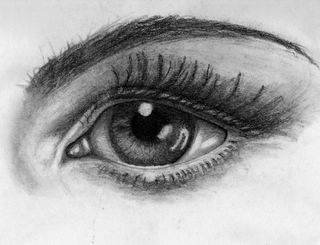In my experimental psychology class we got to experiment! My group chose to do a questionnaire that listed eight scenarios that one might actually encounter in his or her life. Half were positive scenarios, half negative. The scenarios were followed by a situation that most people will encounter at some point in their lives, and given three choices as to how they would respond. We hypothesized that when people read the positive scenarios they would choose more pro-social responses to the situation and when they read the negative scenarios they would choose more negative responses to the situation.
When we wrote the situations, we borrowed one from the tv show What Would You Do?. In this scenario, a homeless person was being harassed by a group of kids. In the tv show, most people walked by without offering any assistance. In our situation, participants were given three choices, confront the group of kids, call 911, or walk by like you didn't see it. Most people chose to confront the kids.
Apparently, what we think we would do is different than what we would actually do. One explanation why people don't help when they should is the bystander effect. But I suspect that there is another reason why people don't step in.
Fear.
The Saturday night before Easter, I went to K-mart to get the manicure tool I used on my aluminum sculpture. I had just gotten out of my car when I heard a small child crying and screaming in pain and fear. He was being scolded by an older man. I looked to see what was going on and the man had this child, who couldn't have been more than two years old, by the hand jerking him forward 4-5 feet at a time. "This is abuse!" I said to myself. What would I do?
I did confront the man. I told him that he was abusing the child and to stop. He looked at me and started charging toward me. "What are you going to do about it, huh?" he preened.
I had just purchased a new razor phone with video, and that would have been perfect, except I left it at home. Instead, I pointed to his car and said "I'm going to take your license plate number and turn you in to health and welfare!" This calmed the man a great deal who apologized to me and the child, made up excuses as to why he would behave so badly and that the child was his grandson. I considered following him home to tell the parents, but I didn't. Why?
Because I was scared out of my wits!
It took me a full two hours to calm down from that confrontation. If I saw a group of kids harassing a homeless person, I would think real hard about confronting them. It would depend on the kids. If you confronted the wrong group of kids, they would come after you, wouldn't they? I think 911 would be the option of choice - if you didn't leave your phone at home.
Would I step in if I thought the person's life was in jeopardy? Probably. I don't know how I couldn't. But that's me, and I've been hit by bigger people than me and lived to tell about it. But who knows?
So there it is - fear!
The joke around the house after I got my new phone was that when I saw scenarios like the ones in the experiment that I would hold the phone up and shout "I HAVE VIDEO!" Of course, the one time when I actually stepped in, I didn't have video.
By the way - the results of the experiment were interesting and somewhat counter-intuitive! People made more pro-social choices after reading the negative scenarios than positive. I was quite surprised, and did some research. It turns out that there is a little research that suggests that when people take a hit to their ego, they respond in a way the reaffirms their self concept. I was just excited to get a significant result, even if it didn't uphold our hypothesis!
Wednesday, April 16, 2008
Subscribe to:
Post Comments (Atom)







0 comments:
Post a Comment